java04
字符串加密
1设计思想:
改程序是对小写的a到z进行加密,输入一段字符串str,输入加密的密匙k,判断录入的的字符与
‘z’-k+1的大小,比其小的直接加上密匙转化为新的字符,大于的加(k-26)将最后几位字符转到
开头,实现字符串的加密,解密反之。
2程序流程图:
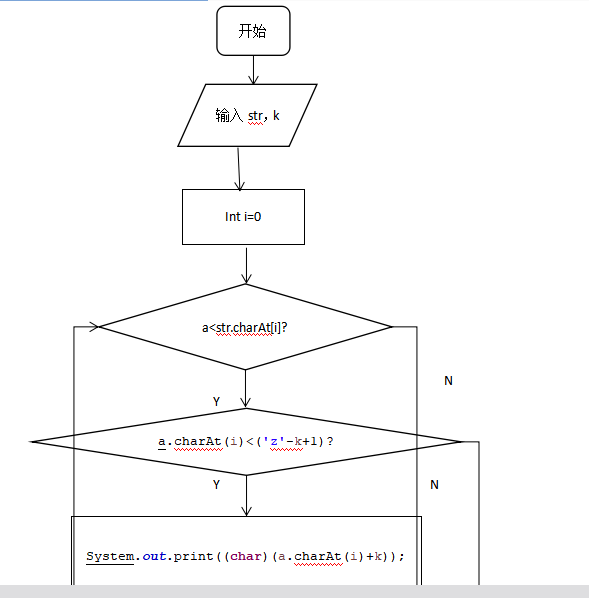
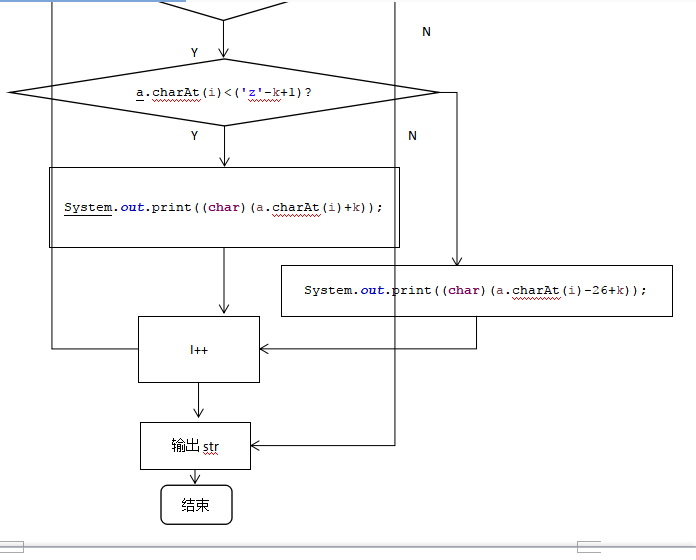
源代码
import java.util.Scanner;
public class 加密 {
public static void main(String[]args) {
Scanner in1=new Scanner(System.in);
System.out.println("请输入caesar cipher:");
int key=in1.nextInt();
System.out.println("解密请输入1,加密请输入2");
Scanner in2=new Scanner(System.in);
int i2=in2.nextInt();
char[]t=new char[100];
char[]f=new char[100];
Scanner in3=new Scanner(System.in);
String str;
str=in3.nextLine();
switch(i2)
{
case 1:{
for(int i=0;i<str.length();i++)
{
t[i]=str.charAt(i);
f[i]=(char) (t[i]-key);
System.out.println(f[i]);
}
}break;
case 2:{
for(int i=0;i<str.length();i++)
{
f[i]=str.charAt(i);
t[i]=(char) (f[i]+key);
System.out.println(t[i]);
}
}break;
}
}
}
结果截图
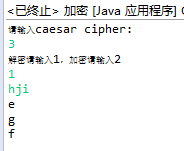
1..String.equals()方法的实现代码
public boolean equals(Object anObject) {
if (this == anObject) {
return true;
}
if (anObject instanceof String) {
String anotherString = (String)anObject;
int n = value.length;
if (n == anotherString.value.length) {
char v1[] = value;
char v2[] = anotherString.value;
int i = 0;
while (n-- != 0) {
if (v1[i] != v2[i])
return false;
i++;
}
return true;
}
}
return false;
}
2.
Length():获取字符串的长度
例子:
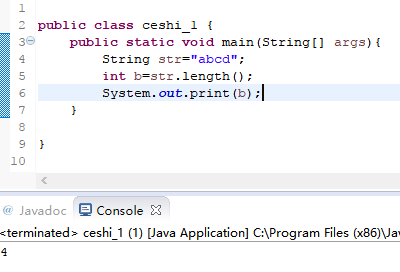
charAt():获取指定位置的字符
例子:
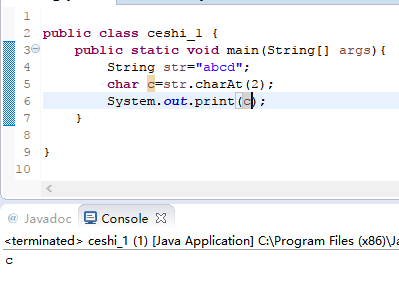
getChars():获取从指定位置起的子串复制到字符数组中它有四个参数,1.被拷贝字符在字串中的起始位置 2.被拷贝的最后一个字符在字串中的下标再加1 3.目标字符数组 4.拷贝的字符放在字符数组中的起始下标
列子:
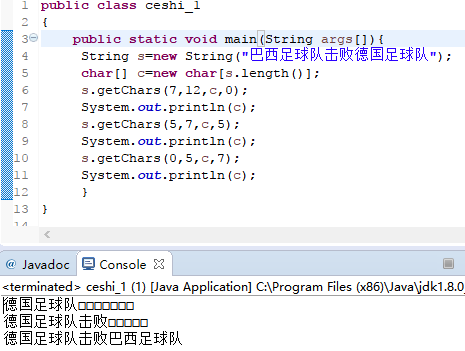
replace():子串替换,可以将原字符串中的某个字符替换为指定的字符,并得到一个新的字符串,该方法的具体定义如下:
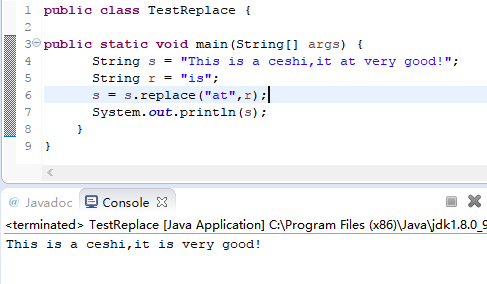
toUpperCase()、 toLowerCase():大小写转换,在String类中提供了两个用来实现字母大小写转换的方法,它们的返回值均为转换后的字符串,
其中toLowerCase()用来将字符串中的所有大写字母改为小写字母,,方法toUpperCase()用来将字符串中的所有小写字母改为大写字母
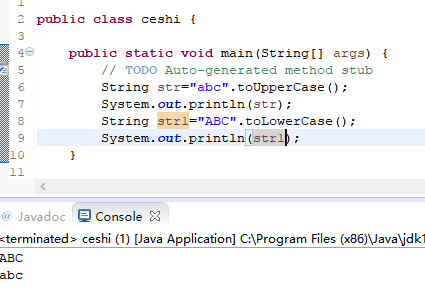
trim():去除字符串的首尾空格,该方法的具体定义如下:
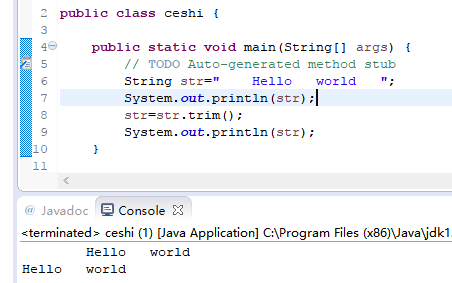
toCharArray():将字符串对象转换为字符数组

3请阅读JDK中String类上述方法的源码,模仿其编程方式,编写一个MyCounter类,它的方法也支持上述的“级联”调用特性
class MyCounter
{
public int x;
MyCounter(int xy)
{
this.x=xy;
}
MyCounter increase(int a)
{
this.x=this.x+a;
return this;
}
MyCounter decrease(int b)
{
this.x =this.x-b;
return this;
}
}
public class ceshi_2 {
public static void main(String[] args) {
// TODO Auto-generated method stub
MyCounter counter1=new MyCounter(1);
MyCounter counter2=counter1.increase(100).decrease(2).increase(3);
System.out.println(counter2.x);
}
}





